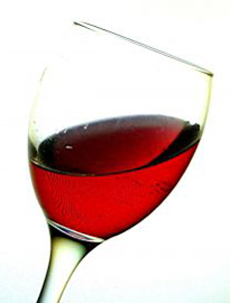FOOD HOLIDAY: National Wine Day
| Who has to have his or her arm twisted to celebrate National Wine Day? Use this article and chart of wine flavor and aroma descriptors to aid in your understanding of whatever you drink.
Speaking of wine descriptors, we’d like to take a few moments to riff on the snarky comments we too often hear about “wine snobs.” Earlier this year, we even received an email from a public relations firm—sent to journalists—asking us to send them our favorite, deprecating “wine snob” terms so that they could turn them into some kind of wine-snob-bashing promotion. The wine brand they mentioned was not a label that “wine snobs” might pursue, so one could see some “fun in bashing the wine snobs” in the works. However, we were shocked that any PR agency or wine brand would encourage such negativity. So, let’s take a minute to talk about “wine snobs,” who they are, and why anyone might want to bash them in the first place. |

Toast to National Wine Day! Photo courtesy StockXchng. |
|
| (a) One who tends to patronize, rebuff, or ignore people regarded as social inferiors and imitate, admire, or seek association with people regarded as social superiors. (b) One who affects an offensive air of self-satisfied superiority in matters of taste or intellect.
O.K., even if they do, what’s it to you? The best course of action is to ignore such people, not call attention to them. But let’s power on. 1. Our first group of “suspects,” people who are wine connoisseurs, could hardly be called snobs. They are people who are seriously educated in wine and who generally enjoy sharing their knowledge with others. Everyone began at the bottom of the wine knowledge ladder, spent years acquiring their expertise, and are always in “learning mode.” – True wine connoisseurs are very passionate and knowledgeable about wine, have highly educated palates, collect fine wine, drink very good wine as a rule and avoid middling wine. Declining to drink mediocre wine does not make one a “snob”: Would you eat a tough steak? Those who enjoy theatre aren’t called “theatre snobs.” Those who spend a lot on fine travel aren’t “travel snobs.” Those who pour fortunes into lavish homes aren’t “real estate snobs.” It’s that industry jargon that others don’t understand or appreciate that causes those who use it to be seen as “snobs.” – Yes, wine connoisseurs use words like “blackcurrant,” “smokey,” “butterscotch” and “leathery” to describe wines. But that isn’t snobby, that’s descriptive—just as you’d use the words like “fruity,” “peppery,” “buttery” or “herbal” to describe different styles of olive oil. Now for the real wine snob. 2. If anyone needs to be called a wine snob, it’s the person who wants to impress people with his wealth and/or knowledge by throwing around the names of prestigious wines he/she has consumed. A person who acts in the manner of the dictionary definition cited above. A person who will tell you that he had a 1990 La Tache Burgundy with his burger last night. – Real wine connoisseurs call this behavior “drinking the labels”—i.e., trying to impress others with what you own or what you’ve drunk or who you drank it with. No one thinks less of a wine snob than a wine connoisseur. So enjoy your glass(es) of wine on this dual holiday. Think of all of those who have given their lives for our country, and how unnecessary it is to need to call anyone a wine snob—or any kind of snob—in the first place. |
||

